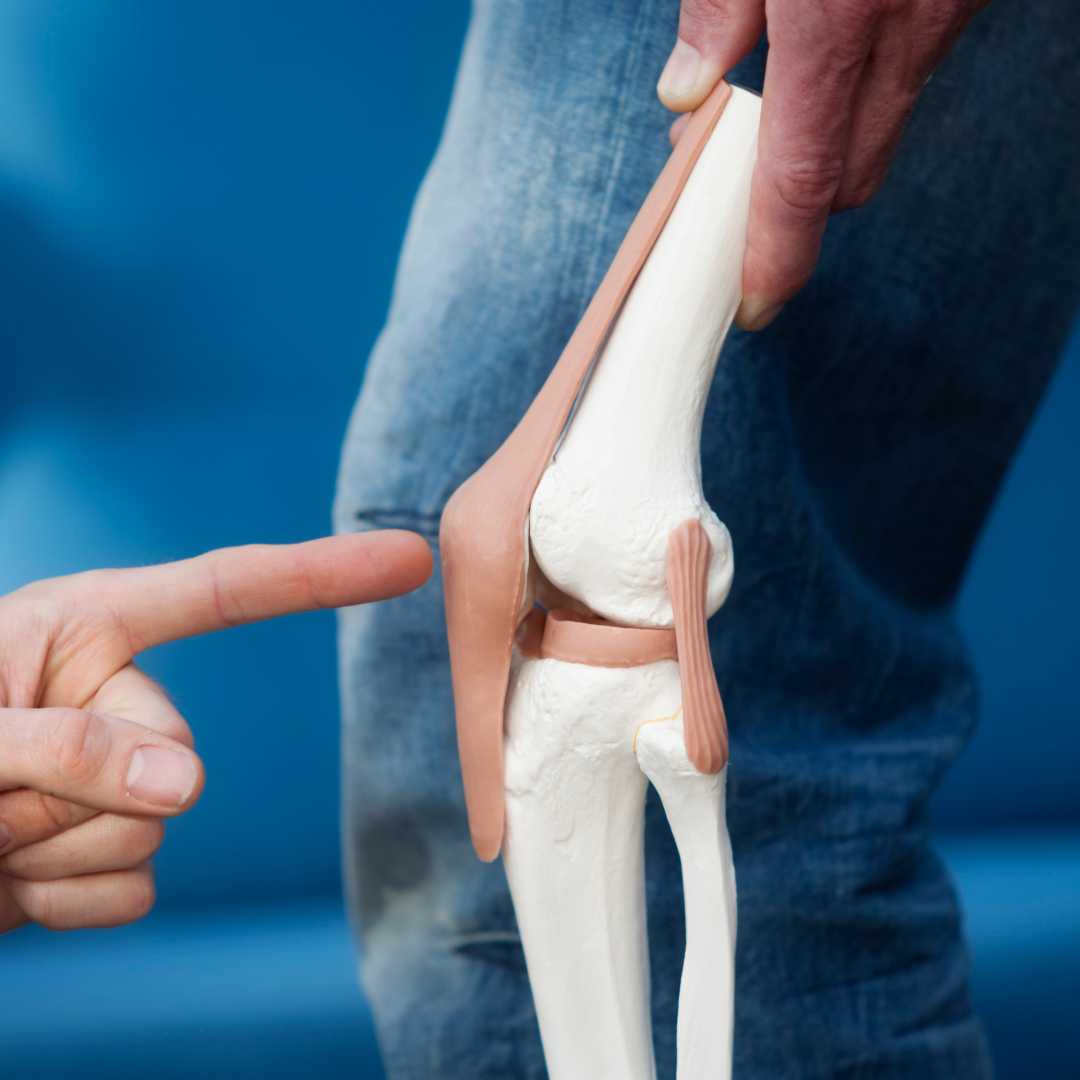A Guide to Medical Tourism for Knee Replacement in Turkey

Living with chronic knee pain can be debilitating, affecting every aspect of your life, from simple daily activities to your overall well-being. When conservative treatments no longer provide relief, knee replacement surgery often becomes the most viable solution. However, the high costs and long waiting lists in many Western countries can be significant barriers. This is where medical tourism in Turkey emerges as a game-changing alternative. Increasingly, patients from the UK, Europe, and the United States are turning to Turkey for high-quality, affordable healthcare, and knee replacement surgery is at the forefront of this trend.
Turkey offers a compelling package: a modern healthcare system that rivals the best in the world, significantly lower prices, and the chance to recover in a beautiful country. The nation has invested heavily in its medical infrastructure, resulting in state-of-the-art hospitals equipped with the latest technology and staffed by internationally trained surgeons. For anyone considering this life-changing procedure, understanding what makes knee replacement in Turkey such an attractive option is the first step toward a pain-free future. This guide will walk you through everything you need to know, from the costs and quality of care to finding the best surgeons and what to expect during your journey.
Why is Turkey a top choice for knee replacement?
The rise of Turkey as a premier destination for medical procedures isn't accidental. It's the result of a concerted effort to build a world-class healthcare system that is both accessible and affordable. For patients needing knee replacement surgery, the benefits are multi-faceted and compelling.
- Cost-Effectiveness: The most significant draw for many is the price. You can receive the same high-quality procedure, using identical materials and technology, for a fraction of the cost you would pay at home.
- High Standards of Care: Turkey is home to numerous hospitals accredited by the Joint Commission International (JCI), the gold standard in global healthcare. This accreditation ensures that facilities adhere to rigorous standards of patient safety and quality of care.
- Experienced Surgeons: Turkish orthopedic surgeons are often educated and trained in top medical institutions across Europe and the United States. They bring a wealth of experience and are adept at performing the latest surgical techniques.
- Advanced Technology: Turkish hospitals have invested heavily in cutting-edge medical technology. It's common to find facilities offering robotic-assisted knee replacement, such as MAKOplasty or the NAVIO system, which enhances precision and can lead to faster recovery times.
- No Waiting Lists: Unlike public healthcare systems in countries like the UK or Canada, where wait times for orthopedic surgery can stretch for months or even years, you can typically schedule your procedure in Turkey within a few weeks.
How much does a knee replacement cost in Turkey?
The cost of knee replacement in Turkey is one of its most appealing aspects. While prices can vary based on the hospital, the surgeon's experience, the type of implant used, and the complexity of the procedure, they remain consistently lower than in most Western nations. A standard total knee replacement (TKR) in Turkey generally includes the surgeon's fees, anesthesia, hospital stay, the prosthesis itself, and pre-operative tests.
Many hospitals offer all-inclusive packages specifically designed for international patients. These packages often cover not just the medical procedure but also airport transfers, hotel accommodation for recovery, and translation services. This transparent, bundled pricing makes financial planning straightforward and eliminates the risk of unexpected costs, providing peace of mind for medical tourists.
How does the cost in Turkey compare to the UK and US?
The cost difference is staggering and is the primary driver for many patients choosing to travel. The lower cost in Turkey is not due to a compromise in quality but rather to the country's lower cost of living, favorable exchange rates, and government support for the medical tourism sector. Surgeons' salaries, operational costs, and administrative expenses are all lower, allowing these savings to be passed on to the patient.
Here is a general comparison of average costs for a total knee replacement:
| Country | Average Cost (USD) |
|---|---|
| Turkey | $4,000 - $9,000 |
| United Kingdom (Private) | $15,000 - $22,000 (£12,000 - £17,800) |
| United States | $30,000 - $75,000 |
| Spain | $18,000 - $25,000 |
What is the success rate of knee replacement surgery in Turkey?
Success in knee replacement is generally measured by pain relief, improved mobility, and implant longevity. Turkish hospitals report excellent outcomes, with the vast majority of patients experiencing a significant improvement in their quality of life. Modern knee implants are designed to be durable, and studies show that more than 85-90% of knee replacements are still functioning well 15-20 years after surgery.
The high success rates are a direct result of the factors mentioned earlier: skilled surgeons, modern JCI-accredited hospitals, the use of advanced surgical techniques like robotic assistance, and high-quality, internationally recognized implant brands. Patient satisfaction is a key metric for Turkish hospitals, and they are committed to achieving the best possible outcomes for their international guests.
Are surgeons in Turkey qualified for knee replacements?
The qualifications of Turkish surgeons are a cornerstone of the country's medical tourism success. Many of the top orthopedic specialists have completed fellowships or residencies at prestigious medical centers in the US, Germany, or the UK. They are fluent in English, accustomed to treating international patients, and are active members of international orthopedic associations.
When researching a surgeon, you can easily verify their credentials, experience, and patient testimonials. Reputable clinics and medical tourism facilitators like PlacidWay provide detailed profiles of their surgeons, ensuring transparency and helping you make an informed decision. Many surgeons in Turkey are also academics and researchers, contributing to the global advancement of orthopedic science.
What kind of technology is used for knee replacements in Turkey?
Turkey's leading orthopedic centers have embraced technological innovation. Robotic knee replacement is becoming increasingly common. These systems are not autonomous robots; rather, they are highly advanced tools that assist the surgeon. A 3D model of the patient's knee is created from a CT scan, allowing the surgeon to plan the procedure with immense precision before making any incisions.
During surgery, the robotic arm provides real-time data and guidance, helping the surgeon to remove only the damaged bone and place the implant in the optimal position for that specific patient's anatomy. This level of accuracy is difficult to achieve with manual techniques alone and contributes to the longevity of the implant and the overall success of the surgery.
Which are the best hospitals for knee replacement in Turkey?
Turkey has a large number of excellent hospitals, particularly in major cities like Istanbul, Ankara, and Izmir. When choosing a hospital, look for JCI accreditation as a baseline for quality. The leading hospital groups are known for their modern infrastructure, patient-centered care, and dedicated international patient departments that streamline the entire process.
- Ac?badem Healthcare Group: A leading network with multiple JCI-accredited hospitals known for advanced technology and comprehensive care.
- Memorial Healthcare Group: Another top-tier group, renowned for its high standards and excellent patient outcomes.
- Liv Hospital Group: Known for its ultra-modern facilities and focus on innovative treatments, including robotic surgery.
- Turan & Turan Health Group: A specialized clinic in Bursa, founded by a pioneer in robotic knee and hip replacement in Turkey, offering highly focused orthopedic care.
What do knee replacement packages in Turkey typically include?
The all-inclusive package model is a major convenience for medical tourists. It simplifies the entire experience by bundling all necessary services into a single, transparent price. This means you don't have to worry about arranging logistics in a foreign country. The hospital's international patient team acts as your concierge, ensuring everything is handled smoothly from the moment you land.
While packages vary, a comprehensive one typically includes:
- Initial consultation and pre-operative diagnostics (X-rays, blood tests).
- The full cost of the surgery, including the implant.
- Hospitalization for the required number of days (usually 3-5).
- All medications and nursing care during the hospital stay.
- Initial physiotherapy sessions.
- VIP transfers between the airport, hotel, and hospital.
- A dedicated translator or patient coordinator.
How do I find the best knee replacement surgeon in Turkey?
Choosing the right surgeon is the most critical decision you'll make. Start by looking for specialists in orthopedics and traumatology with a focus on joint replacement. A good surgeon will have a verifiable track record of successful procedures. Check their educational background, fellowships, and memberships in professional organizations.
Don't hesitate to schedule an online video consultation before committing. This is a great opportunity to ask questions, discuss your case, and get a feel for their communication style and approach. A reputable surgeon will be transparent about the procedure, risks, and expected outcomes. Reading reviews from previous international patients can also provide invaluable insight.
What is the quality of medical facilities in Turkey?
The image of Turkish healthcare has been transformed over the past two decades. The leading private hospitals resemble five-star hotels, with modern architecture, private patient rooms, and a focus on comfort and service. More importantly, behind the aesthetics lies a serious commitment to medical excellence.
JCI accreditation is a key indicator of quality. This non-profit organization evaluates hospitals worldwide on over 300 standards, covering everything from surgical protocols and infection control to patient rights and staff qualifications. Choosing a JCI-accredited hospital for your knee replacement in Turkey ensures you are being treated in a facility that meets or exceeds global benchmarks for quality and safety.
Is it safe to get a knee replacement in Turkey?
Knee replacement is a major surgery, and like any surgery, it carries inherent risks (such as infection, blood clots, or implant failure) regardless of where it is performed. However, the risks are not higher in Turkey's top hospitals. In fact, due to the high volume of procedures they perform, these centers are often highly specialized and have robust protocols in place to minimize complications.
The key to a safe experience is thorough research. By working with a trusted medical tourism provider and selecting a JCI-accredited facility with a proven track record, you can be confident that you are in safe hands. These hospitals use the same sterile techniques, high-quality implants, and evidence-based practices as leading hospitals in the US and Europe.
What happens during the initial consultation?
The process typically begins before you even travel. You will be asked to send your medical records, including recent X-rays or MRI scans, to the hospital's international patient department. The orthopedic surgeon will review these to make a preliminary assessment.
This is followed by a video consultation where you can speak directly with the surgeon. This is your opportunity to ask detailed questions about their experience, the proposed surgical technique, the recovery process, and the expected outcome. Once you arrive in Turkey, you will have a final in-person consultation and pre-operative tests to ensure you are fully prepared for the surgery.
How long is the recovery period for a knee replacement?
Recovery begins almost immediately after surgery. A physical therapist will help you get up and walk, often on the same day as the procedure. Early mobilization is crucial to prevent blood clots and stiffness. During your hospital stay, you will learn exercises to strengthen your new knee and manage pain and swelling.
After being discharged, you will continue with physical therapy as an outpatient. Most patients stay in a nearby hotel for another week or two to attend these sessions and for a final follow-up with the surgeon before being cleared to fly home. The full benefits of the surgery are realized over several months as you regain strength and mobility.
What does post-operative care and rehabilitation involve in Turkey?
Rehabilitation is just as important as the surgery itself for a successful outcome. Turkish hospitals place a strong emphasis on post-operative care. Your physical therapy program will be tailored to your specific needs, starting with gentle exercises and gradually progressing to more challenging activities to restore your range of motion and build muscle strength.
Before you leave Turkey, your medical team will provide you with a comprehensive plan for your continued recovery at home. They will give you instructions on wound care, medication, and a detailed exercise regimen. Many hospitals also offer remote follow-up consultations to monitor your progress once you have returned to your home country.
What are the different types of knee replacement surgeries available in Turkey?
The type of surgery you need depends on the extent of the damage to your knee joint. Your surgeon will recommend the most appropriate option after a thorough evaluation.
- Total Knee Replacement (TKR): This is the most common type, where all three compartments of the knee joint are replaced. It's the standard procedure for advanced, widespread arthritis.
- Partial Knee Replacement (PKR): If the damage is confined to just one compartment of the knee, a partial replacement may be possible. This is a less invasive procedure with a potentially faster recovery time as it preserves more of the natural bone and ligaments.
- Revision Knee Replacement: This is a more complex procedure to replace a worn-out or failed implant from a previous surgery. It requires a high level of surgical skill and specialized implants.
Ready to take the next step towards a pain-free life? Explore top-rated, JCI-accredited hospitals and expert orthopedic surgeons in Turkey. Visit PlacidWay today to get a free quote and discover personalized knee replacement solutions tailored to your needs.


.png)














Share this listing